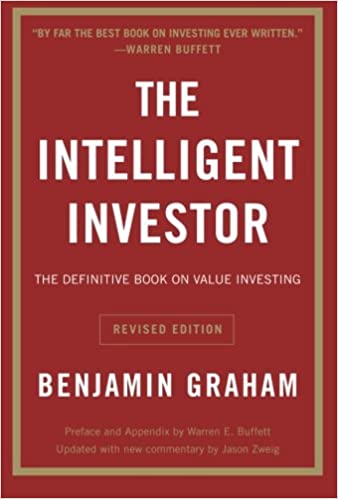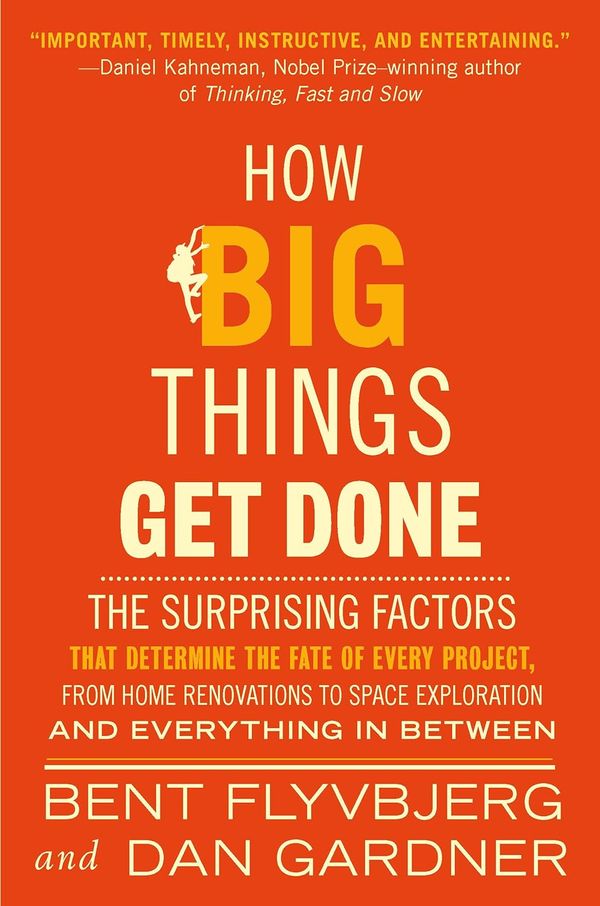By Benjamin Graham (1973)
Pages: 578,Final verdict: Should-read
"By far the best book on investing ever written" - according to Warren Buffett and many other followers of Benjamin Graham's ideas. The Intelligent Investor is definitely the classic book on an investment philosophy called value investing and I wanted to know what it was all about.
Graham worked in Wall Street since the 1930s. First published in 1949 and revised for the last time by Graham himself in 1972, this edition of The Intelligent Investor also includes commentaries from 2003 by the financial journalist Jason Zweig. In fact, every chapter gets a complimentary commentary chapter by Zweig, which gives us a great perspective on how Graham's ideas could be applied in the 21st century.
The investor vs. the speculator
Graham draws a difference between an investor and a speculator early on in the book. According to him, an investor is willing to hold on to his stocks because he is convinced of the intrinsic value of the company he is buying into, whilst the speculator is interested in short terms gains by anticipating market fluctuations. This is a key concept in the value investing philosophy.
The Intelligent Investor mainly focuses on the mindset which an investor should have and a set of principles to be followed. Graham achieves that by discussing primarily about stocks and bonds portfolios, with a few chapters dedicated to funds, convertible bonds and plenty of examples from the mid 20th century.
"The true investor scarcely ever is forced to sell his shares, and at all other times he is free to disregard the current price quotation (...) thus the investor who permits himself to be unduly worried by unjustified market declines in his holdings is perversely transforming his basic advantage into a basic disadvantage." - Benjamin Graham
For starters, Graham makes us aware that our investment choices depend on how much effort we are willing to put into it. He divides potential investors in two groups: the defensive investor and the enterprising investor, providing different advice for each group.
- An entreprising investor will dedicate most his time to security analysis and he can expect (slightly) above average returns
- However, the defensive investor is the profile where the majority of us fit: we are looking for ways to invest our money for a future retirement (in the Caribbean?), but we don't have the time to do extensive stock analysis
Being certain that we have the right expectations for our investment, we could choose to look for professional advice or invest in a mutual fund. However, Graham warns us to only follow advice by a professional for whom you have deep trust (with tips on how to confirm it) and that most mutual funds don't beat the market. One solution is to invest in an index fund which immitates the market and has very low management commissions.
Recipe for success: Find 1) good Quality and 2) cheap Price
For those of us who are willing to choose the stocks to invest in (Jason Zweig recommends 90% of the stock portfolio in an index fund and only 10% stock picking), Graham ellaborates on what to look for to reap good returns from our investments.
The secret of value investing is to focus on companies which have a solid financial position and good prospective growth (Quality) and which are not overpriced by the market (Price):
- Calculate the P/E ratio (Price/Earnings); the market is probably expensive if the average P/E ratios are over 20, a moderate level stands between 10-20, values under 10 mean it might be a good time to buy
- Look into the financial reports of the company of the last 5 years and watch out for hidden losses or irresponsible accounting techniques
- Ensure diversification by splitting your investment by a minimum of 10-30 companies
- Require a strong financial position (current assets at least twice the current liabilities)
- Positive earnings on each of the past 10 years with a cumulative earnings growth of at least 33% over that period (recommendation adjusted to 50% by Jason Zweig)
- At least 10 years of continuous dividend payments
- As for the Price: limit yourself to a P/E ratio of a maximum of 15 times, when considering the average earnings of the last 3 years.
All these ratios can nowadays be easily calculated by using tools such as Google or Yahoo Finance. The financial reports for US companies are all to be found at the EDGAR database.
"To achieve satisfactory investment results is easier than most people realize; to achieve superior results is harder than it looks." - Benjamin Graham
Are you willing to do this research work? Are you willing to refrain from selling when the market is down? If not, it probably means that you should avoid investing a considerable amount of your money in companies whose value you are not willing to take the time to properly judge, instead settling for satisfactory and safe returns (which probably will also get you to the Caribbean!).
Bottom Line
Some people claim that this type of investing is out of date because today's markets are efficient and it is not possible to find undervalued stocks (each price would accurately reflect all available data on the respective company). On the contrary, I believe there are for sure still many opportunities of buying when the market is depressed and selling when others are euphoric.
My main learning point was to not expect miraculous overachieving returns on my investments and to focus on the underlying value of the business I am buying and not on the past short term price gains; to pay attention to the market being overvalued and sell at right time.
Unfortunately there is not so much in the book about how to divide your whole assets portfolio among stocks and bonds, etc. - I learned the principles of valuying businesses, but that does not mean that I should invest all my assets in stocks.
I must also confess that this was a difficult book to read, taking me much longer than usual to complete. With almost 600 pages, it is detailed and technical. Nonetheless, I would recommend it for anyone who likes to learn from the classics; for all others, I suggest a more recent and practical investment book such as Money by Tony Robbins.
Further learning:
- Buy the book online.
- Jason Zweig's personal website - for further articles on value investing
- The Superinvestors of Graham-Doddsville - the text which serves as appendix to this edition, where Warren Buffett explains how Graham's disciples earned millions by following his investment philosophy
- Warren E. Buffett's letters to shareholders - the most successful of Benjamin Graham's followers (and richest man in the world!) writes about his investments and we can read them all for free online



